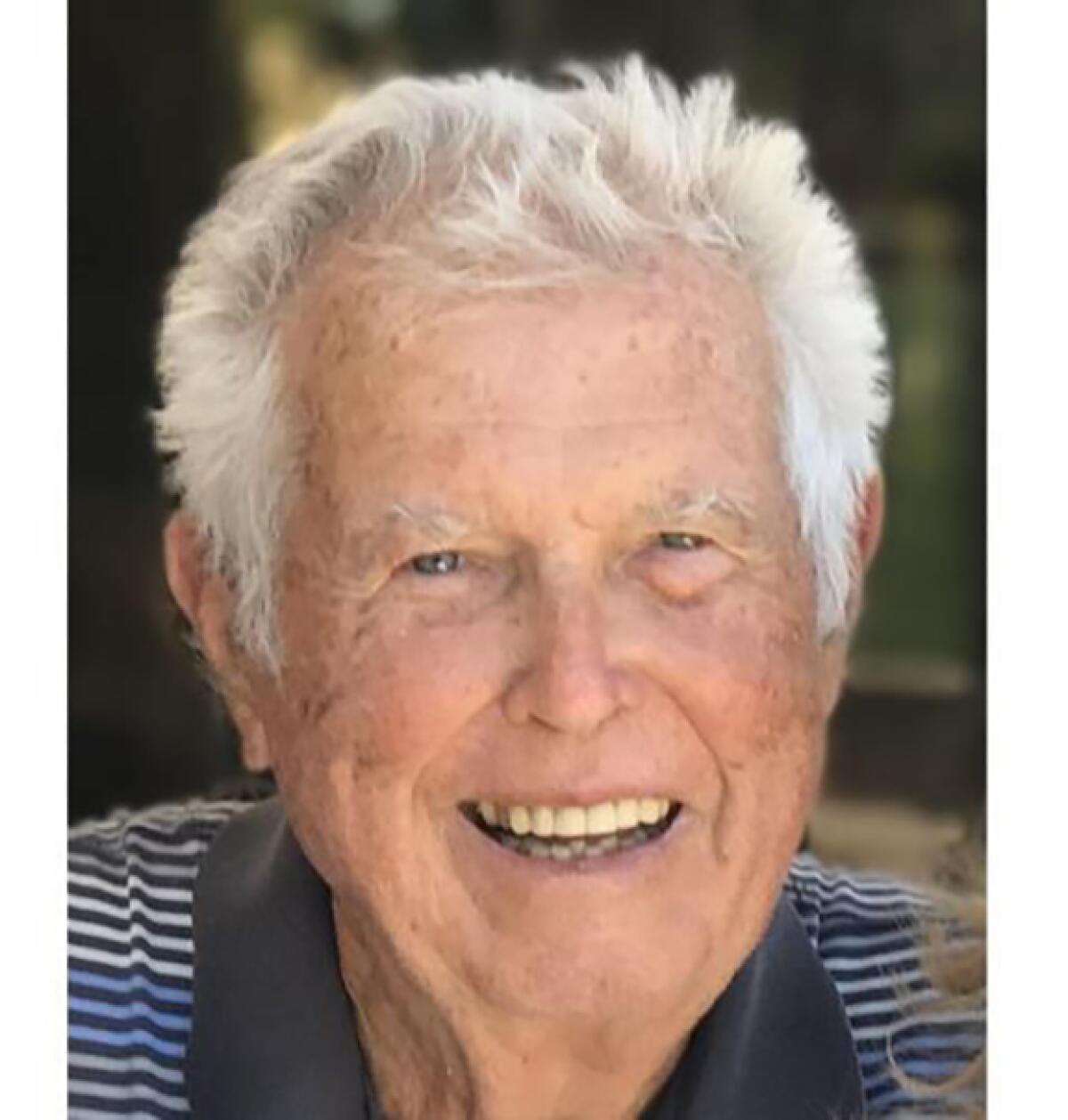Bob Kelley, publisher of Kelley Blue Book, dies at 96

- Share via
Bob Kelley, the longtime publisher of Kelley Blue Book who oversaw the publication as it became an indispensable resource for consumers and the auto industry, died May 28 at the age of 96.
He died in his home in Indian Wells in his sleep, his family said.
Kelley joined the Kelley Kar Co. — at one point the largest Ford dealership in the world — and Kelley Blue Book shortly after serving in World War II.
The dealership was founded by his uncle, Les Kelley, with three Model Ts in 1918. But the dealership, sitting in the heart of Los Angeles on Figueroa Street, was central to what would become a booming car culture in Southern California.
The Kelley Blue Book, or KBB, would be its bible.
The KBB was started in 1926 but it was under Bob Kelley’s leadership that the publication would expand to include foreign cars, new vehicles, and motorcycles, trucks and RVs.
Long used as a vital resource by banks, dealerships and courts, Kelley Blue Book would become not just a go-to resource for the industry, but also the authoritative source in valuing nearly anything on wheels.
“The guy must have been the smartest car person in the country at a moment in time,” said his son-in-law and former KBB editor, Charlie Vogelheim. “It became an important tool in the industry.”
Born in Los Angeles in 1927, Kelley graduated from Los Angeles High School in 1945, then attended the University of New Mexico’s naval aviator training program during World War II.
He joined the Ford dealership and was in charge of appraising and reconditioning used cars there. Used cars were a major part of the dealership because new cars were not built during the war, Vogelheim said.
The Kelley Blue Book had already taken an important role in the industry.
It had started out as a publication listing the cars the dealership wanted to buy and the price it would pay for the vehicle.
That was an important factor, Vogelheim said, because it gave authority and legitimacy to the prices listed in the book to banks, financial institutions and competing car dealers.
“The dealership was the largest and they [bought and sold] so many cars,” he said. “They backed it with their behavior.”
The dealership closed in 1962, but KBB lived on.
With Kelley at the helm of Kelley Blue Book, the publication began to use important changes and factors in the industry to provide detailed, updated values for vehicles.
Kelley Blue Book began to include mileage as a factor, listing trucks, color, even how current events might affect pricing and values.
“The challenge was having hundreds, and then thousands, of models in a book that fit in your pocket,” he said.
When the internet came along, disrupting the publishing business, Kelley Blue Book saw it as an industry-transforming change.
“It was a difficult business decision, but an easy decision to make information easier to reach,” Vogelheim said. “It could be updated, and be very specific. Our other competitors were saying, ‘No, we’re not going to do that.’ Again, Bob and KBB were looking at it as a practicality.”
In 2010, Cox Automotive’s Autotrader.com bought KBB for more than $500 million.
“Bob Kelley was a true pioneer in the automotive industry,” Cox Automotive said in a statement. “From its humble beginnings to the comprehensive online resource we know today, Bob’s impact has been immeasurable.”
For the record:
12:46 p.m. June 4, 2024An earlier version of this article stated Bob Kelley had been in hospice for years. He was in hospice for several months before he died.
Vogelheim said Kelley had been in hospice for several months, but his children and grandchildren were able to see him the weekend before he died.
He is survived by his wife of more than 50 years, Wanda; his sister; five children; 12 grandchildren; and 10 great-grandchildren.
“He was a very nice, wonderful man with a nice sense of humor and a quick smile,” Vogelheim said. “We miss him terribly.”
Even in his later years after retirement, Vogelheim said, Kelley was sharp and quick with numbers, eager to offer his advice on business or anything else.
“You could talk to him about anything beyond car values, and you could hear him using percentages in his head,” he said. “He didn’t have a college degree on the wall, but he was smarter than some of the people that did.”
More to Read
Sign up for Essential California
The most important California stories and recommendations in your inbox every morning.
You may occasionally receive promotional content from the Los Angeles Times.











